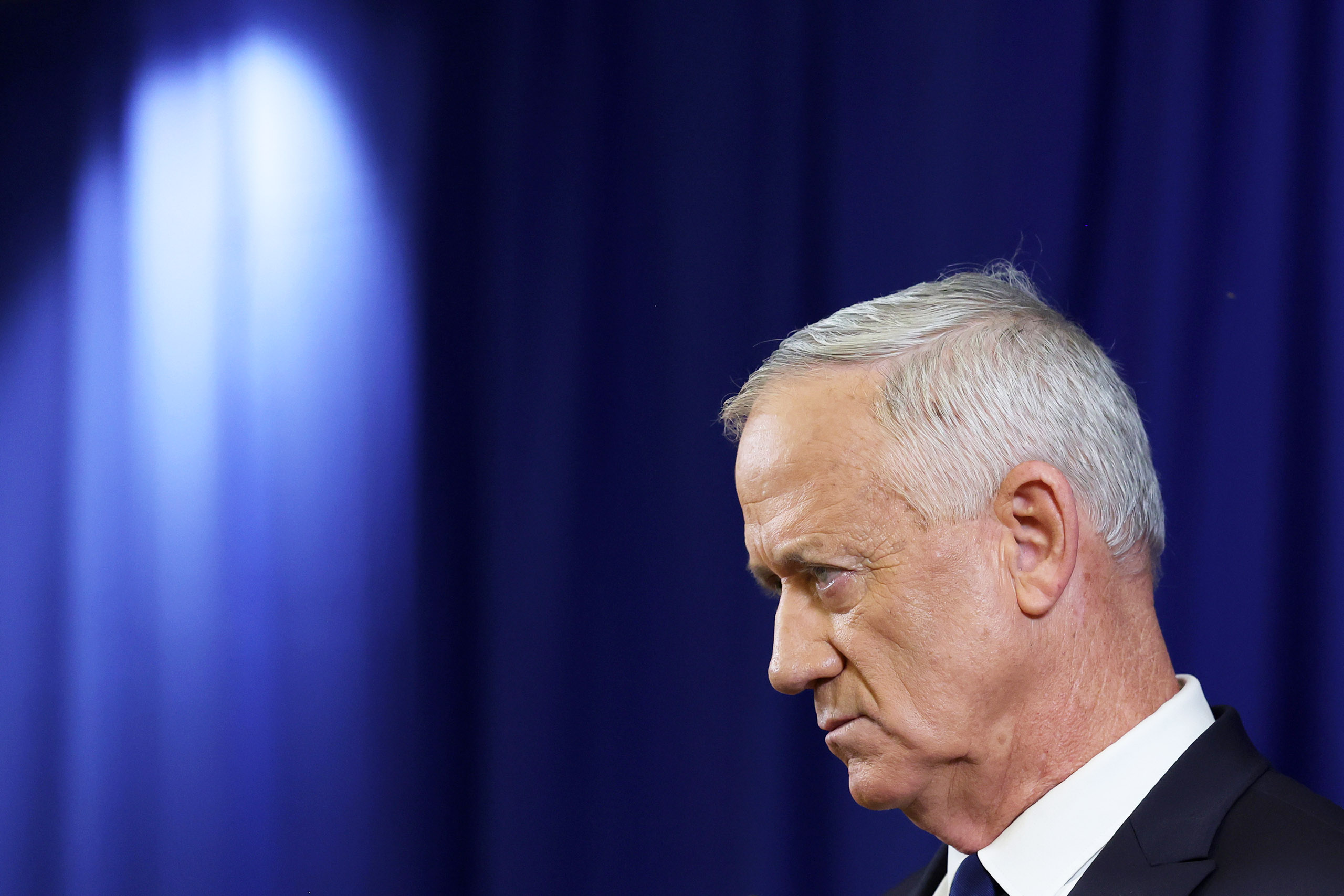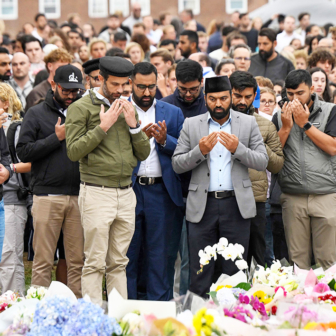On the spectrum of Israeli politics stretching back decades, National Unity chair Benny Gantz stands at the centre. Following his resignation from Israel’s war cabinet at the weekend, the question is whether he has the mettle of some of his predecessors on the centre and left of Israeli politics to assert himself politically.
Not a natural politician, nor a compelling speaker, Gantz is a decorated former head of the Israel Defence Force. He follows in the footsteps of Moshe Dayan, Yitzhak Rabin and Ehud Barak, all of whom converted distinguished military careers into political office with varying success. Gantz hasn’t performed particularly convincingly in his political roles in and out of government.
If Abraham Lincoln’s observation that “a house divided against itself cannot stand” holds then a deeply fractured Israel is at its most perilous moment since its war of independence in 1947–48. Even the Yom Kippur war of 1973, in which Egyptian forces crossed the Suez Canal in a surprise attack, didn’t rise to the same level of threat.
The challenges are from within and without. Israel is not only at war with Palestinians under occupation and trading blows with Iran’s proxy, Hezbollah, to its north, it is also beset by some of the deepest internal political cleavages in its turbulent history. On top of all that, its international reputation is under siege as the horrifying death toll in Gaza mounts.
Israel desperately needs a unifying figure to displace the divisive Benjamin Netanyahu — a man reviled by swathes of its own population, as evidenced by mass demonstrations that persist against him in time of war. Can the centre hold in Israel in the person of Gantz and other centrists? Or will the country’s allies be obliged to continue living with a nationalist regime tugged to the right by extremist partners?
We have seen the effect of this internal stalemate in the Biden administration’s efforts to bring about a ceasefire in Gaza. Peace plans brokered by the Qataris and Egyptians in collaboration with American envoys have been blocked by extremist elements in Netanyahu’s coalition.
This is precisely why Gantz says he has had enough. In his resignation statement he made clear it was Netanyahu’s failure to outline a plan for Gaza once the fighting stops that prompted his decision. “Fateful strategic decisions are stuck due to hesitancy and procrastination out of political considerations,” he said in long-anticipated television remarks.
Gantz declared in mid-May that he would withdraw from the war cabinet unless Netanyahu embraced a “plan of action” including the creation of an “international civilian governance mechanism for Gaza.” This is the “day after” question that has bedevilled debate about the Gaza conflict from the beginning: what arrangements might be made to administer Gaza once the bombing stops?
Netanyahu’s steadfast refusal to answer that question has been allied with his insistence that the mainstream Palestinian Authority must have no role. By threatening to leave a vacuum or, worse, conveying the impression that Israel intends to remain an occupying force indefinitely, this refusal has vastly complicated efforts to bring about an end to hostilities.
Gantz’s resignation coincides with the arrival in the region of US secretary of state Antony Blinken on what is his eighth peace mission, all of which have so far proved inconclusive. On this occasion Blinken is focused on marketing a peace plan advanced by president Joe Biden on 31 May.
In latest developments Hamas has attached conditions to its acceptance of the Biden plan, including a more detailed timeline for a permanent end to hostilities. Israel has not provided an explicit acceptance publicly, with Netanyahu insisting the war “will not end until all of its goals are achieved, including the return of all abductees, and the elimination of Hamas’s military and governmental capabilities.”
The first phase of the American plan would provide a six-week window while three things happened: an Israeli withdrawal from Gaza’s populated areas, Hamas’s release of some Israeli hostages in exchange for hundreds of Palestinian prisoners, and a surge in humanitarian assistance.
Phase 2 would involve the release of all remaining hostages. Israel would withdraw from Gaza and, and, depending on Hamas living up to its commitments, hostilities would cease permanently. Phase 3 would involve a “major reconstruction plan” for Gaza.
In contrast to Netanyahu’s obstructionism, Gantz has expressed support for the Biden plan.
Those opposing views raise the question of the hour: will Gantz’s resignation hasten the end of the Netanyahu government? The short answer: probably not, although Israel’s domestic politics is so volatile that defections from the Netanyahu’s ruling bloc can’t be ruled out.
As things stand, Netanyahu’s fractious coalition holds sixty-four of the 120 Knesset seats. A handful of defectors would be needed to jeopardise his grip on power.
Gantz has called for fresh elections in the second half of this year to try to resolve the country’s bitter divisions. Opinion polls indicate that his National Unity bloc would outpoll Netanyahu’s Likud.
But a continuing war in Gaza, risks of escalation across Israel’s Lebanon border, and Middle East instability more generally render any prediction risky.
By withdrawing from a war cabinet, Gantz has tugged a thread from a flimsy political façade in Israel. Whether he has left it too late, and whether Gantz himself has the political acumen, the force of personality and, most importantly, the ability to rally support remains a very open question.
Irrespective of international pressure for a permanent ceasefire, Netanyahu will be reluctant to give up war aims that involve the complete destruction of Hamas. The Gaza conflict now rests between two objectives: Hamas’s demands for a timeline on a permanent ceasefire and Israel’s requirement that Hamas play no further role in Gaza’s governance. These are difficult objectives to reconcile. Over to you, Benny Gantz. •
First published 11 June 2024; updated 12 June 2024 to reflect developments overnight.




